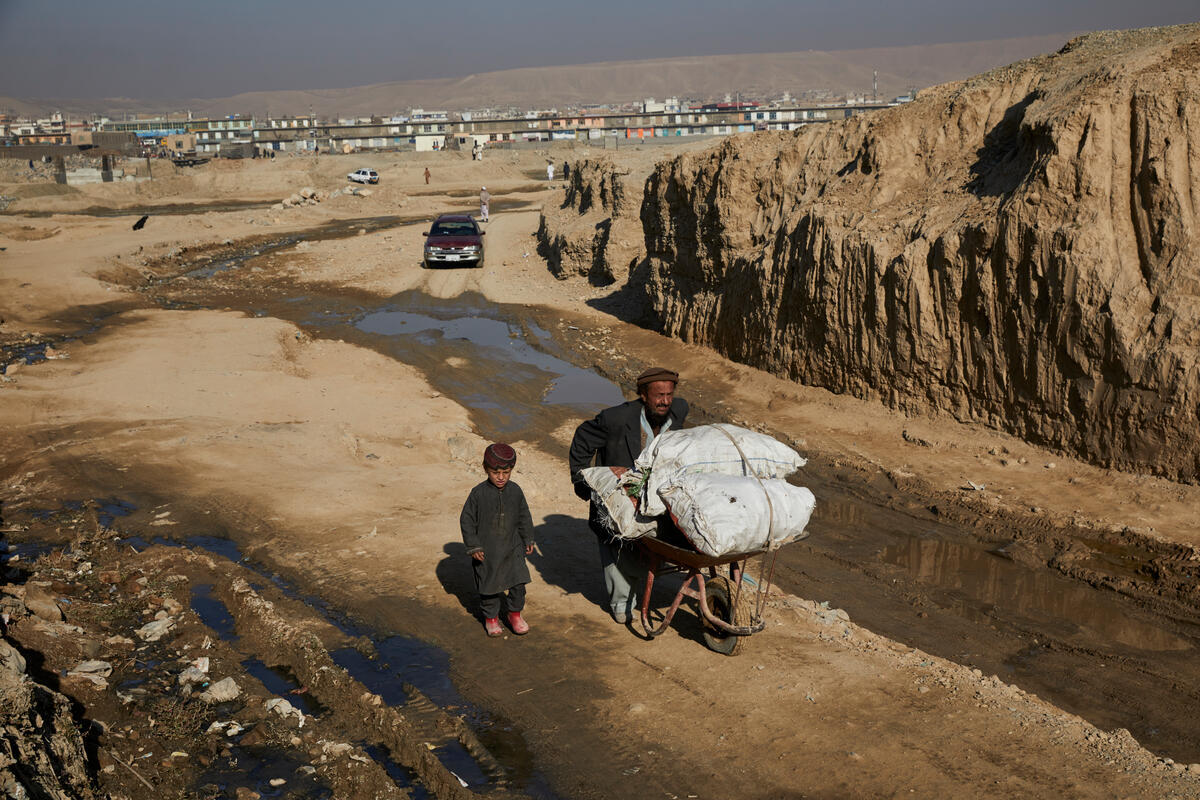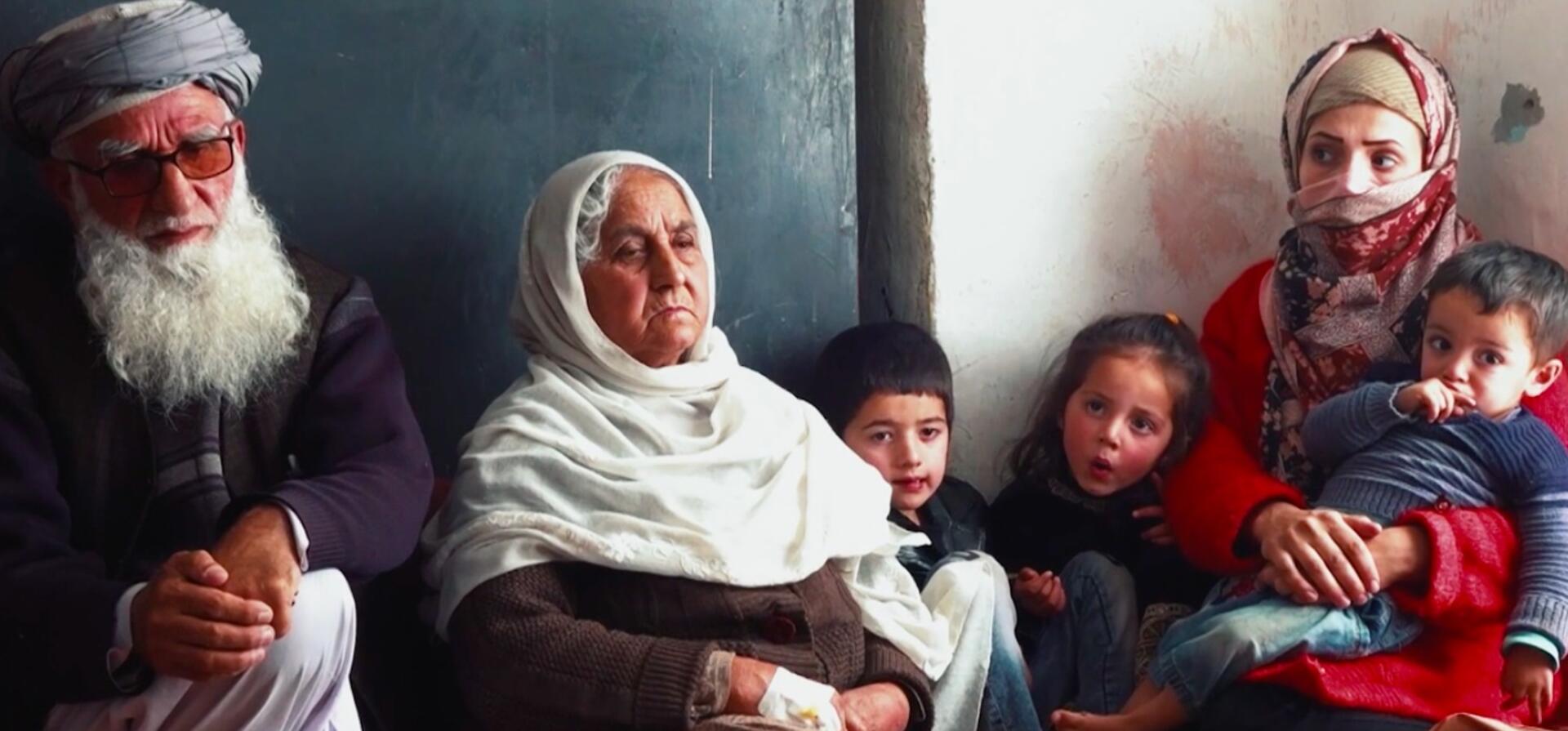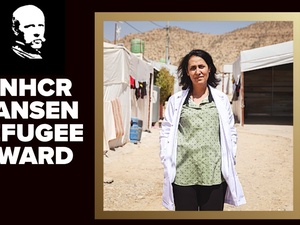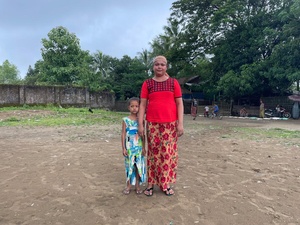Displaced families in Kabul caught in downward spiral
Mullah Ahmed’s* children gaze at the flames licking up the inside of the family’s small stove. The warm glow in their mud-brick house is a welcome relief from the cold of the Kabul winter beyond the curtain door.
But as he lifts a blackened kettle from the stove, Mullah releases a burst of noxious fumes. He is burning strips of old carpet and other combustible rubbish that he has found in the streets. “What can I do?” he says. “We can’t afford wood.”
It’s a familiar story of adapting to survive in Afghanistan. But for Mullah, the options are running out. He and his extended family of 14 are among some 700,000 people forced out of their homes over the past year by the conflict. While the fighting may now be over, many internally displaced people (IDPs) are facing a potentially more devastating crisis caused by the economic collapse that has followed.
UNHCR, the UN Refugee Agency, warned on 3 December that 23 million Afghans – 55 per cent of the population – are now facing extreme levels of hunger, with nearly 9 million of them at risk of famine and the humanitarian crisis “escalating daily”.
"We live on cheap vegetables and bread."
Some families have taken advantage of the end of the fighting and return assistance available through UNHCR to go back to their home districts where they are struggling to pay for adequate food and fuel, and to repair war-damaged homes. But those like Mullah and his family, with no home to return to and no work, are facing some of the direst situations. Humanitarian aid is their only hope of avoiding a downward spiral of crippling debt and hunger.
“We live on cheap vegetables and bread,” says 28-year-old Farishta, as she waits in line at a building on the eastern outskirts of Kabul where UNHCR is distributing cash grants to the most vulnerable IDP families. “We haven’t eaten meat since we came to Kabul four months ago.”
After a UN assessment team visited the one-room home she shares with her 10-year-old daughter Rehana, 11-year-old son Aslam, and 20-year-old brother Salim, she was designated to receive two cash grants totalling US$490. The money will help her cover the rent on her home and “winterization” costs, such as buying a stove and firewood, extra blankets and clothes. For Farishta, who is a widow, the help has come just in time.
She worried her landlord would evict them, as she had not been able to pay rent for the past three months. Other than the occasional money Salim earns doing odd jobs, the family has been surviving by borrowing. “We have been getting all our food on credit,” says Farishta.
Her plan is to use the cash grants to pay off all her debts, but that will use up half the money with no more help to come in the immediate future. “I wish I could give my children a better future, to get them educated, but we are stuck,” she says.
Looking after her children is not her only concern. Farishta is originally from the northern province of Takhar where Salim had worked with US forces as a translator. As the Taliban closed in on Takhar this summer, Farishta, her parents and her other siblings and children – some 20 people in all – decided their only option was to flee the country.
They headed for the south-western province of Nimroz, aiming to link up with the smugglers who get Afghans without papers into Iran via neighbouring Pakistan. “But we couldn’t afford to pay for all of us to go,” says Farishta. The result was that her parents and her younger brothers went to Iran, while Farishta and Salim travelled to Kabul. But her family in Iran are struggling, with her brothers only managing to find low-paid work as street sweepers. Even as she tries to care for her children, Farishta has had to send money to help them, putting herself deeper into debt.
UNHCR is now providing cash assistance to more than 20,000 IDP families in the central region, which includes Kabul and the surrounding provinces. That is a ten-fold increase on last year, according to Ahmad Sattar Faheem, a senior repatriation associate in the agency’s Kabul office. For the most part, the IDPs are scattered in cheap rental accommodation or living with relatives. For a few weeks after the fall of Kabul, some set up temporary camps in the capital, but most of those people have now returned home. Although most of those who remain have a temporary shelter, their living conditions are usually dire.
Back at Mullah Ahmed’s house, his 6-year-old son, Assadullah, gives a rasping cough as he stares at the blaze inside the stove. His eldest daughter, Farzana, 20, crouches behind the chimney, clutching her 6-month-old son, Umaid. The room is small and the fumes hang thick, but there is no heat in the other room in the house, so most of the family crowd in there. His 3-year-old, Aseela, barefoot and wearing thin, tattered clothes, chews a scrap of bread she has found on the floor.
See also: Afghanistan on the brink
Much of the time, that is all the family has to eat, explains Mullah. “I get old bread from the bakery, and then we dip it in water to soften it.” He shows the remains of a simple mash of rice inside a bowl that they have saved. If he has some money, he buys a few vegetables.
It is five months since the family arrived in Kabul after fleeing their home in the eastern province of Nangarhar. They had a small farm there which used to feed the extended family, as well as generating a small surplus each year. But fighting between former Afghan government forces and the Taliban spread to the area and made farming impossible. Mullah decided the only option was to move to Kabul. “We didn’t think the Taliban would capture the capital as well.”
It was the latest upheaval in a life defined by trying to stay ahead of Afghanistan’s decades of political turmoil. He and his family were refugees in neighbouring Pakistan for nearly 20 years, only returning to Afghanistan in 2010. Two years ago, his brother was killed in a suicide bombing after he went to the southern city of Ghazni to look for work. Mullah is now caring for his widow and two children.

Mullah Ahmed and his five-year-old son transport firewood back to their temporary home in Kabul. He was able to buy the fuel after receiving winterization assistance from UNHCR.
In Kabul, Mullah initially got some work as a porter at the nearby bus station, but it has gradually dried up. “I used to make 100 or 150 Afghanis ($1.50) a day helping people with luggage. Now I’m lucky if I can make that much in a week.” At the same time, the cost of basic goods like flour and fuel is going up, while the value of the Afghan currency plummets.
Like Haditha, he has been getting food on credit. Except now, local shopkeepers have stopped serving him. He reckons he still owes them at least 35,000 Afghanis (about $350) – a crushing burden for a family with virtually nothing.
“I hide from the shopkeepers when I see them,” says Mullah, with a pained expression.
For now, the family are surviving on charity and the $265 in winterization assistance they received from UNHCR. The owner of the house they are staying in fled as the Taliban advanced, asking his neighbour to look after the small compound. The neighbour took pity on Mullah and his family and let them stay rent-free. Other neighbours sometimes give them bread, but many of them are struggling too.
“I’m very worried about the rest of the winter,” Mullah says, looking at his barefoot children. “If we don’t get more help, may Allah forbid, we will have to start begging.”
*All names have been changed for protection reasons.









